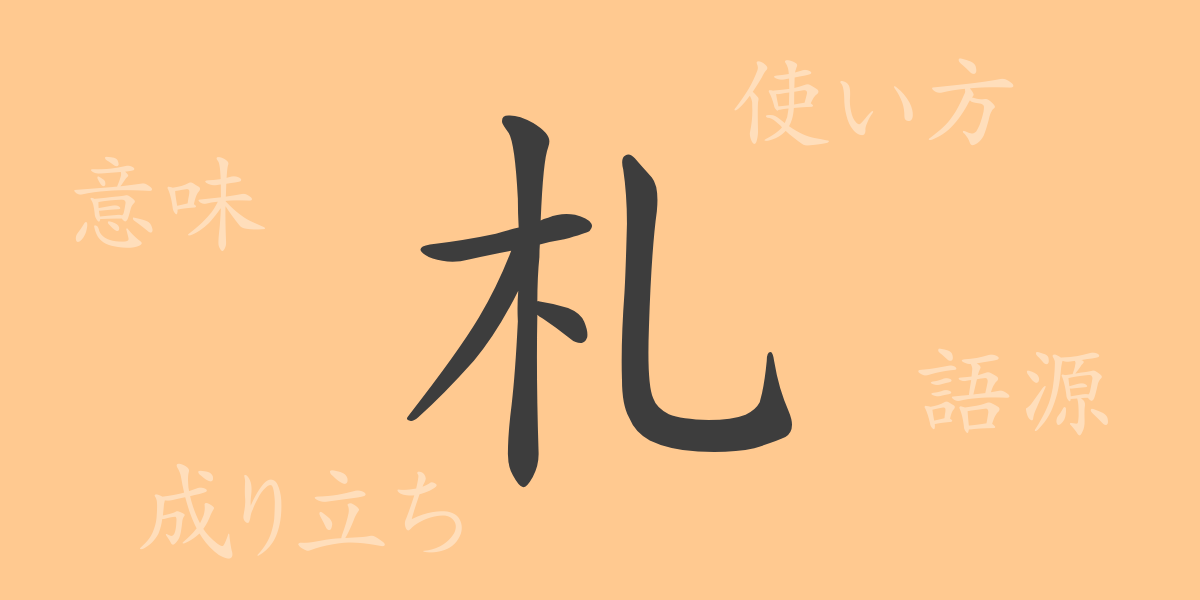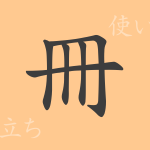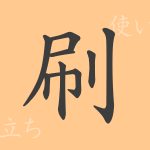Deeply rooted in Japanese culture, the kanji “札” (さつ, satsu) carries a history and plays a crucial role in daily life. From banknotes to business cards and various labels, “札” permeates our lives. This article delves into the origins, meanings, usage, and the idioms and proverbs ingrained in the Japanese psyche, exploring the charm of “札”.
Origin of 札 (さつ, satsu)
The kanji “札” (さつ, satsu) originates from ancient Chinese characters. Initially, it was used to carve symbols or characters on bamboo or wooden pieces to convey meaning, combining the “示” (しめす, shimesu) radical, meaning “to show,” with the “木” (き, ki) radical, indicating “wood.” Over time, “札” came to signify documents and tickets, evolving uniquely in Japan.
Meaning and Usage of 札 (さつ, satsu)
In modern Japanese, “札” (さつ, satsu) refers to pieces of paper or plaques with writing, used in contexts such as money, tickets, and business cards. It is also used for signs and notices that display specific information, making “札” omnipresent in our surroundings.
Readings, Stroke Count, and Radical of 札 (さつ, satsu)
The kanji “札” (さつ, satsu) may appear simple, but it encapsulates a wealth of information.
- Readings: The on’yomi (音読み) reading is “サツ” (satsu), and the kun’yomi (訓読み) reading is “ふだ” (fuda).
- Stroke count: It has a total of 5 strokes.
- Radical: The radical is “木” (き, ki), indicating “wood”.
Idioms, Phrases, and Proverbs Using 札 (さつ, satsu) and Their Meanings
Japanese language is rich with idioms, phrases, and proverbs incorporating “札” (さつ, satsu), reflecting Japanese life, values, and thoughts.
- 「札束」 (さつたば, satsu-taba): Refers to a large amount of money, especially bundles of banknotes.
- 「札付き」 (ふだつき, fuda-tsuki): Indicates proof or guarantee of something, often used to describe someone with a criminal record.
- 「名刺を切る」 (めいしをきる, meishi o kiru): Originally meaning to exchange business cards during introductions, it has come to signify greeting or introducing oneself.
These expressions play vital roles in facilitating smooth communication in social life.
Conclusion on 札 (さつ, satsu)
The kanji “札” (さつ, satsu) is indispensable in Japanese life, from cash to business cards and various signs. Its significance is profound, and the idioms and phrases that include “札” (さつ, satsu) reflect the essence of Japanese culture and society. Through this single character, one can gain insights into the lives and minds of the Japanese people.

























